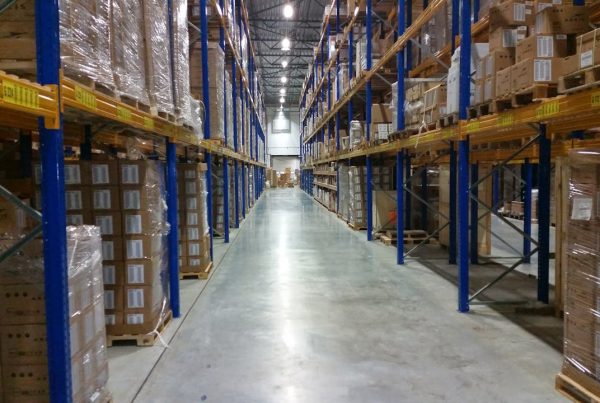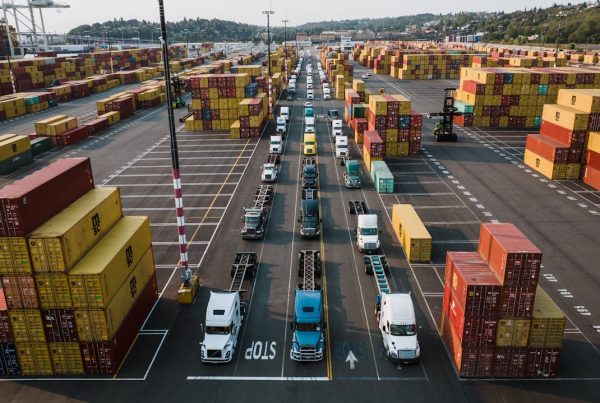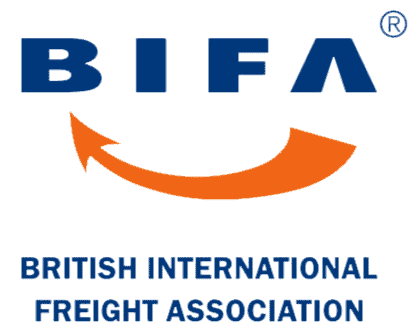When shipping goods internationally, one of the most important things to understand is Incoterms. These are the standard trade terms published by the International Chamber of Commerce (ICC), and they define the responsibilities of buyers and sellers in global trade.
At Barrington Freight, we’ve worked with hundreds of UK businesses that import or export goods regularly. One of the most common areas of confusion for new customers is how Incoterms affect their shipping arrangements and costs. This article clears that up.
Table of Contents
What Are Incoterms?
Incoterms, short for International Commercial Terms, set out who is responsible for each stage of the shipping journey. This includes:
- Who pays for transport
- Who handles insurance
- Who takes on risk at different points
- Who deals with customs clearance
They are updated periodically; the current version is Incoterms 2020.
Why Incoterms Matter
Understanding Incoterms helps avoid disputes and delays. They provide clarity for both parties in a transaction. If you’re a UK business shipping pallets or containers abroad, using the correct Incoterm in your sales or purchase contract can save time and prevent unexpected charges.
For example, we recently helped a client exporting machinery to Germany under DAP (Delivered At Place). They assumed the buyer would clear the goods at customs. But under DAP, the seller handles delivery up to the destination, including all risks, except for unloading and import duties.
The 11 Incoterms Explained
For Any Mode of Transport
- EXW (Ex Works): Buyer collects goods from the seller’s premises. Seller has minimal responsibility.
- FCA (Free Carrier): Seller delivers goods to a location chosen by the buyer.
- CPT (Carriage Paid To): Seller pays for transport to a named place, risk transfers earlier.
- CIP (Carriage and Insurance Paid To): Like CPT, but seller also covers insurance.
- DAP (Delivered At Place): Seller delivers to the named destination. Buyer unloads and clears customs.
- DPU (Delivered at Place Unloaded): Seller delivers and unloads. Buyer clears customs.
- DDP (Delivered Duty Paid): Seller is responsible for everything including import duties.
For Sea and Inland Waterway Transport Only
- FAS (Free Alongside Ship): Seller places goods next to the vessel at the port.
- FOB (Free On Board): Seller loads goods onto the vessel. Risk passes once on board.
- CFR (Cost and Freight): Seller pays for transport but risk passes once goods are loaded.
- CIF (Cost, Insurance and Freight): Same as CFR, but seller also pays for insurance.
At Barrington Freight, we specialise in making your importing and exporting straightforward. From customs clearance to finding the right commodity codes, our expert team is here to assist. Don’t let the complexities of global trade hold you back. Reach out to Barrington Freight for efficient and reliable shipping solutions.
How Incoterms Impact Shipping Costs
Incoterms determine who pays for what. Some businesses prefer to control logistics, others prefer the seller to handle everything.
Key cost factors affected by Incoterms include:
- Freight charges (road, sea, or air)
- Insurance
- Import/export duties
- Handling and unloading fees
- Documentation and clearance
Who Does What: Responsibilities by Incoterm
| Incoterm | Seller pays transport? | Seller arranges insurance? | Seller clears export? | Buyer clears import? | Delivery location |
|---|---|---|---|---|---|
| EXW | No | No | No | Yes | Seller’s premises |
| FCA | To named place | No | Yes | Yes | Buyer’s carrier |
| CPT | To named place | No | Yes | Yes | Destination |
| CIP | To named place | Yes | Yes | Yes | Destination |
| DAP | Yes | Optional | Yes | Yes | Buyer’s premises |
| DPU | Yes | Optional | Yes | Yes | Buyer’s premises |
| DDP | Yes | Optional | Yes | No | Buyer’s premises |
| FAS | No | No | Yes | Yes | Port of shipment |
| FOB | No | No | Yes | Yes | On board vessel |
| CFR | To destination port | No | Yes | Yes | Destination port |
| CIF | To destination port | Yes | Yes | Yes | Destination port |
Final Thoughts
Incoterms are essential to international trade. Understanding what they mean helps prevent disputes, reduce costs, and streamline your logistics. Whether you’re shipping a single pallet or full containers, the right Incoterm can make all the difference.
Need help choosing the right Incoterm for your shipment? Barrington Freight supports UK businesses with fast, reliable freight forwarding to Europe and beyond. Our team can guide you through the best terms for your needs.
About the Author
Simon Poole began his career in production planning, quickly rising to manage 24-hour manufacturing lines and oversee a team of 140 staff. In 2007, he joined Barrington Freight, where he brought his operational expertise into the logistics sector. Appointed Operations Director in 2021, Simon now leads all day-to-day operations, including sea, air and European freight, working closely with clients and partners worldwide.
Need help with your freight?
Contact Barrington Freight for a personalised consultation. We offer fast, reliable freight forwarding for businesses across all industries – by road, air or sea.





